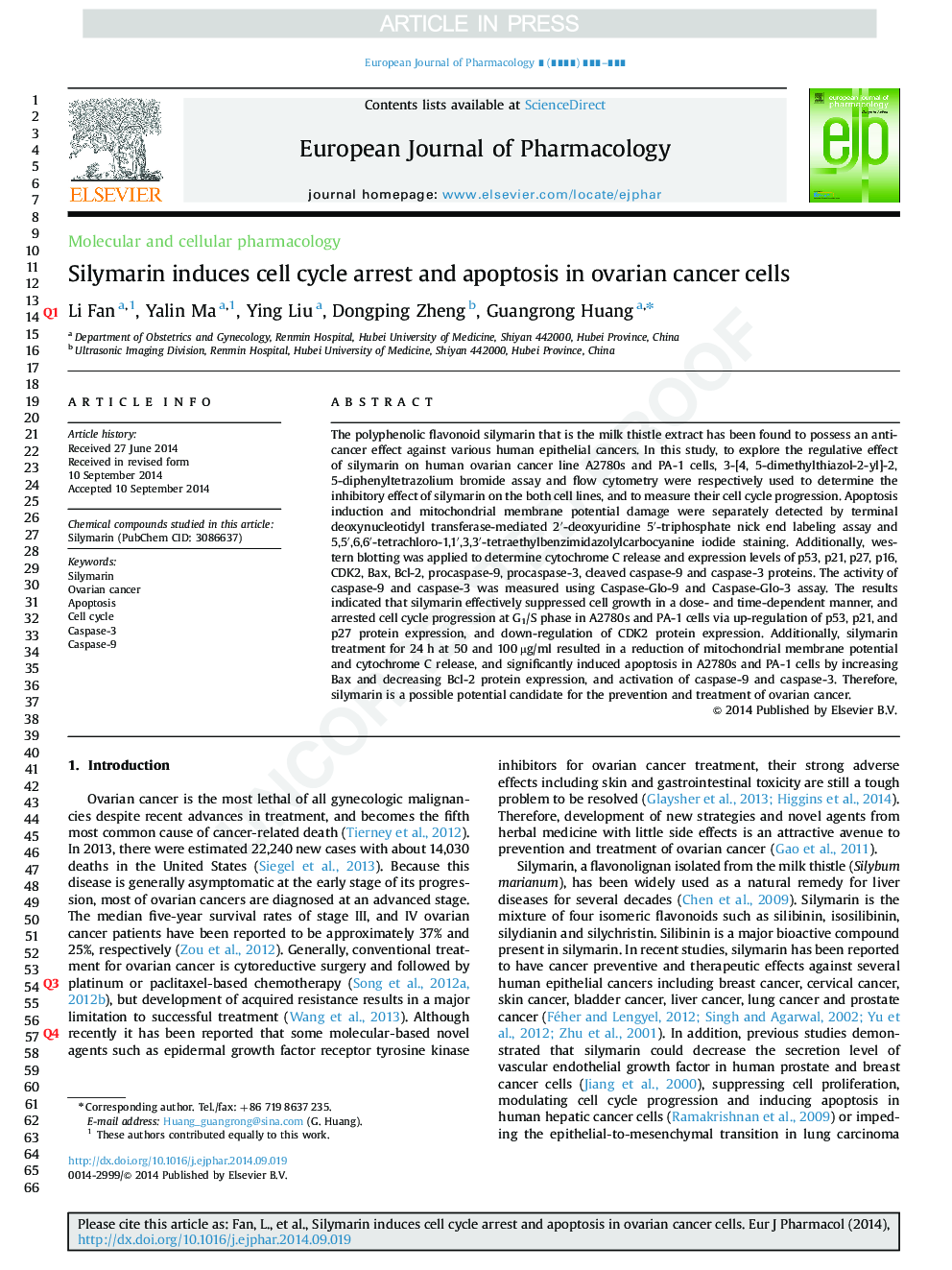| Article ID | Journal | Published Year | Pages | File Type |
|---|---|---|---|---|
| 5827577 | European Journal of Pharmacology | 2014 | 10 Pages |
Abstract
The polyphenolic flavonoid silymarin that is the milk thistle extract has been found to possess an anti-cancer effect against various human epithelial cancers. In this study, to explore the regulative effect of silymarin on human ovarian cancer line A2780s and PA-1 cells, 3-[4, 5-dimethylthiazol-2-yl]-2, 5-diphenyltetrazolium bromide assay and flow cytometry were respectively used to determine the inhibitory effect of silymarin on the both cell lines, and to measure their cell cycle progression. Apoptosis induction and mitochondrial membrane potential damage were separately detected by terminal deoxynucleotidyl transferase-mediated 2â²-deoxyuridine 5â²-triphosphate nick end labeling assay and 5,5â²,6,6â²-tetrachloro-1,1â²,3,3â²-tetraethylbenzimidazolylcarbocyanine iodide staining. Additionally, western blotting was applied to determine cytochrome C release and expression levels of p53, p21, p27, p16, CDK2, Bax, Bcl-2, procaspase-9, procaspase-3, cleaved caspase-9 and caspase-3 proteins. The activity of caspase-9 and caspase-3 was measured using Caspase-Glo-9 and Caspase-Glo-3 assay. The results indicated that silymarin effectively suppressed cell growth in a dose- and time-dependent manner, and arrested cell cycle progression at G1/S phase in A2780s and PA-1 cells via up-regulation of p53, p21, and p27 protein expression, and down-regulation of CDK2 protein expression. Additionally, silymarin treatment for 24 h at 50 and 100 µg/ml resulted in a reduction of mitochondrial membrane potential and cytochrome C release, and significantly induced apoptosis in A2780s and PA-1 cells by increasing Bax and decreasing Bcl-2 protein expression, and activation of caspase-9 and caspase-3. Therefore, silymarin is a possible potential candidate for the prevention and treatment of ovarian cancer.
Related Topics
Life Sciences
Neuroscience
Cellular and Molecular Neuroscience
Authors
Li Fan, Yalin Ma, Ying Liu, Dongping Zheng, Guangrong Huang,
